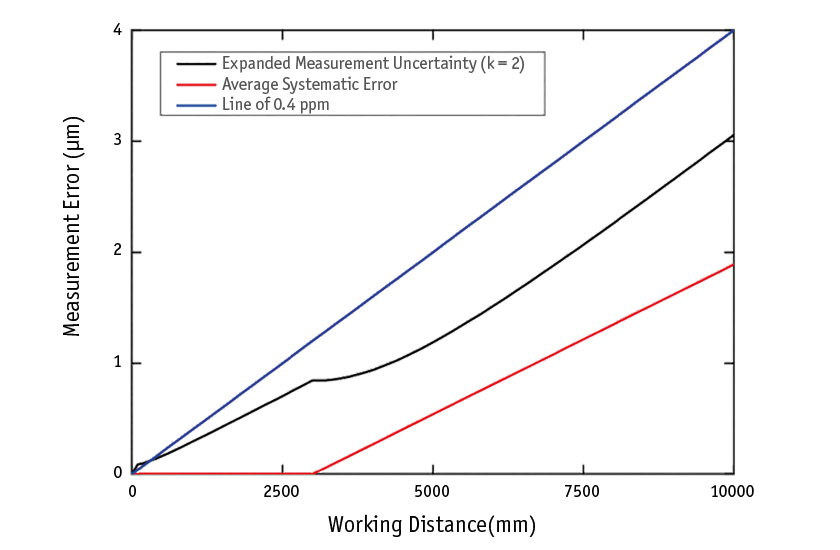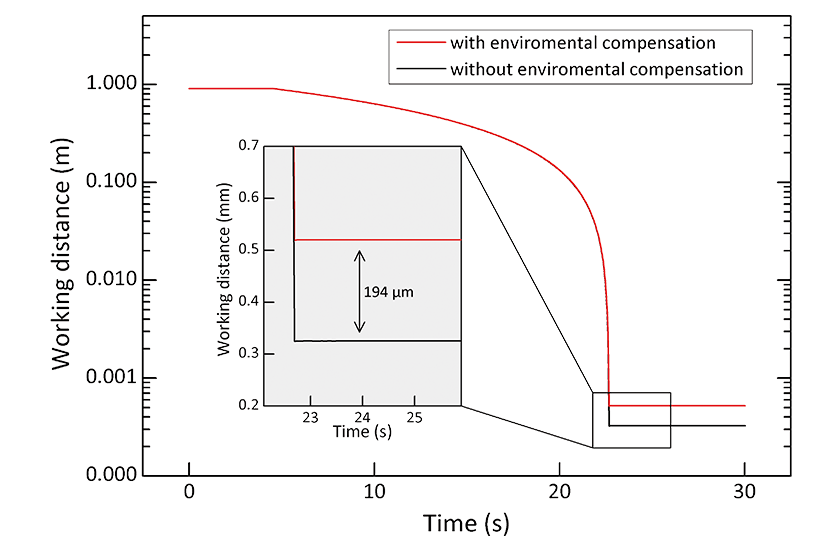
PTB Certification for the IDS3010
certified accuracy over long distances
attocube’s interferometers IDS had been tested by the National Metrology Institute of Germany (PTB). The accuracy of the interferometers has been confirmed at various pressure, humidity and temperature conditions over several days, thus also confirming the high performance and reliability of attocube’s ECU (environmental compensation unit).
The IDS was checked over a working distance of 10 meters. The systematic error of measurement was quantified to 0.0 ppm between a working distance of 0 m and 3 m. The total expanded measurement uncertainty (k=2), consisting of the systematic and random measurement errors mostly remains under 0.4 ppm.
Proven Sub-nanometer Signal Stability
The intrinsic signal stability of the IDS sensor – equivalent to its positional repeatabilty - is unheard of in industrial position sensing. While being specified to achieve a repeatability of 2 nm at 20 mm working distance and 100Hz measurement bandwidth (in vacuum), IDS sensors routinely achieve significantly better performance.
The actual measurement above shows positional stability as measured with an IDS3010 on a titanium cavity cooled to liquid helium temperature (-269 °C), temperature stabilized to few milli-degrees. The plot shows position sensing data recorded on a 77 mm long cavity during a 20 hour period of time, measured at 100 Hz bandwidth. The standard deviation of the above shown measurement is 55 picometer!

Long-term signal stability as demonstrated on a 77 mm long cavity cooled to liquid helium temperature (-269°C) in order to minimize thermal expansion/contraction.

Displacement measurements as performed at variable sensor/target separation in constant conditions. The plot shows the displacement sensing error of 246 μm over 1 meter travel range (uncompensated).
Environmental Compensation
(optional)
Any interferometric device operated in environmental conditions is negatively influenced by index of refraction fluctuations, caused by air temperature, pressure, and humidity variation. The influence of these parameters is significant and can reach deviations in measurement of up to 500 ppm, equivalent to a deviation of 500 μm per meter.
To compensate these errors, attocube offers an environmental compensation unit (ECU) which precisely measures environmental parameters and determines the actual index of refraction n(t). This measurement allows to compensate environmental influences down to better 1 ppm and enables highly precise, accurate measurements in air.

